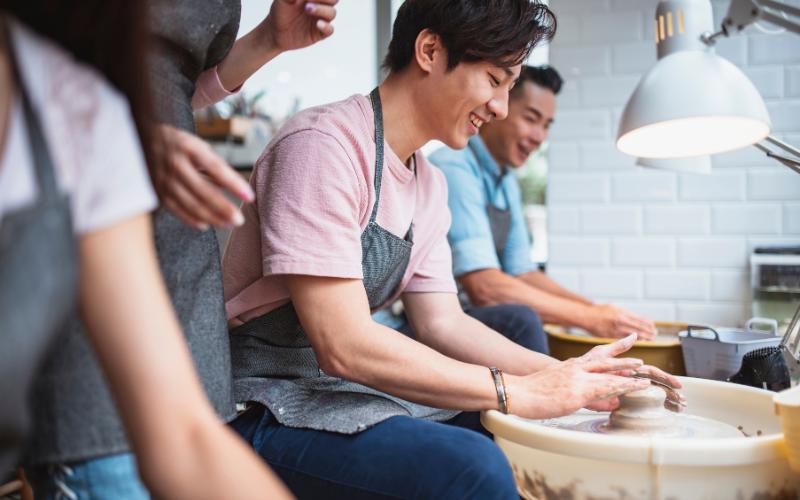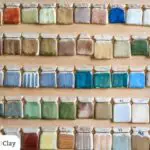The Cost of Pottery Classes
The price for a single pottery class can vary depending on your location and the length and level of the class. It’s common to see 2 hour single classes, with materials provided, starting at $50-$100. This may change depending on the focus of the class. Wheel throwing and hand building for example, may have different costs associated with them when compared to sculpting.
It’s not uncommon for a block of classes to cost between $350 to $400. Again, changes to cost will be based on class focus, materials and location. A local co-op may offer rates much lower, between $30-40 per class after a materials fee.
A master class will have their own fees based on the instructor and length of the sessions. These classes are generally for advanced students and can start at $100 per hour. Depending on the studio, a master class could be 1-on-1 or a very small group of advanced students.
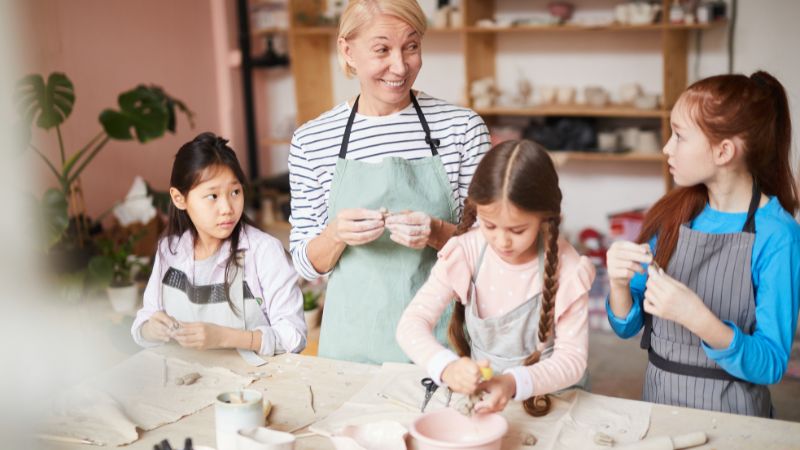
What do we learn from this?
Generally, private lessons or one-on-one sessions tend to be pricier compared to group classes. It makes sense, though, since you get personalized attention and guidance.
Keep in mind that some classes may require specialized equipment like pottery wheels or slab rollers, which could add to your out-of-pocket cost if not provided by the studio.
Extra expenses like firing fees or the cost of materials can vary from one studio to another, so it’s a good idea to ask!
Is Paying for a Class Worth It?
In our opinion, yes!
Pottery classes offer a wonderful opportunity to explore creativity and learn the art of clay crafting. There are many techniques involved in becoming a well rounded professional or hobbyist.
If you or your child enjoy working with your hands, classes can be really fun.
Classes are also a great place to meet like-minded people and make new friends. Some of these experiences you cannot put a price on.
This holds true for kids, who will have opportunities to explore a creative output and meet new children their age.
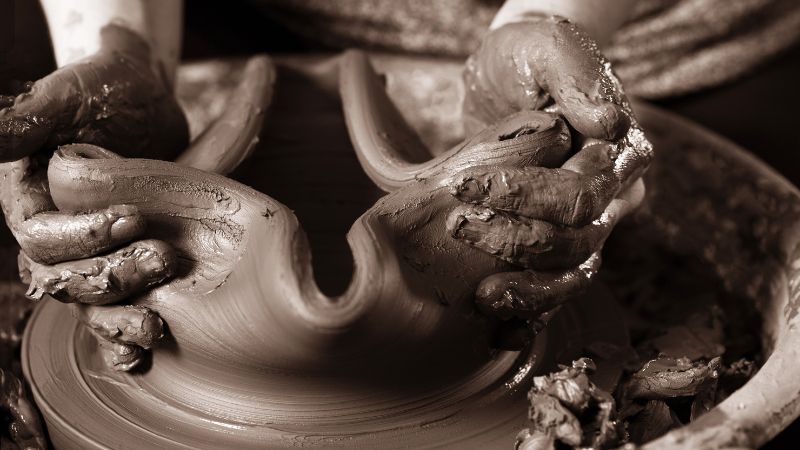
Private lessons or one-on-one sessions may tend to be more expensive compared to group classes. Additionally, the use of specialized equipment like pottery wheels or slab rollers may also impact the cost.
It is important to consider additional expenses such as firing fees or the cost of materials, which can vary from studio to studio. Each pottery studio or art center may offer different class options and pricing structures, so it is always best to reach out to the studio directly or check their website for more detailed information on class options and pricing.
Benefits of Pottery Classes
Pottery classes offer a multitude of benefits, making them a popular choice for people of all ages and skill levels. Not only are they a great way to learn a new skill, but they also provide a therapeutic and stress-relieving activity.
One of the key advantages of pottery classes is their suitability for beginners. Whether you have never touched clay before or have some basic skills, there are options available to cater to your needs. From one-time classes to regular weekly workshops, pottery classes offer flexibility and the opportunity to learn at your own pace.
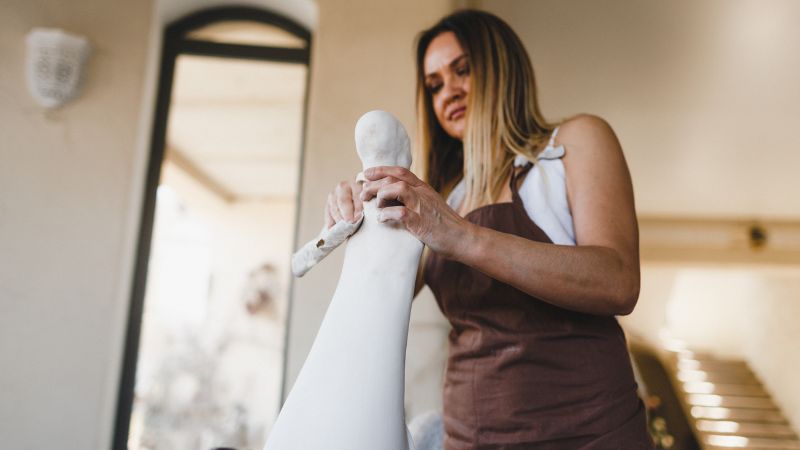
In addition to being a creative outlet, pottery classes promote mindfulness and can have a calming effect on participants. Working with clay engages all of the senses and requires focus and attention to detail. This meditative quality of pottery can help reduce stress and allow individuals to be fully present in the moment.
Another benefit of pottery classes is the sense of accomplishment that comes with creating something by hand. As participants progress and develop their skills, they can produce beautiful and unique pottery pieces that they can be proud of. Classes are also a great way to get inspired to design and paint unique pottery bowls and mugs.
This sense of pride and achievement can boost self-confidence and provide a sense of satisfaction.
Techniques You May Find Covered in Pottery Classes
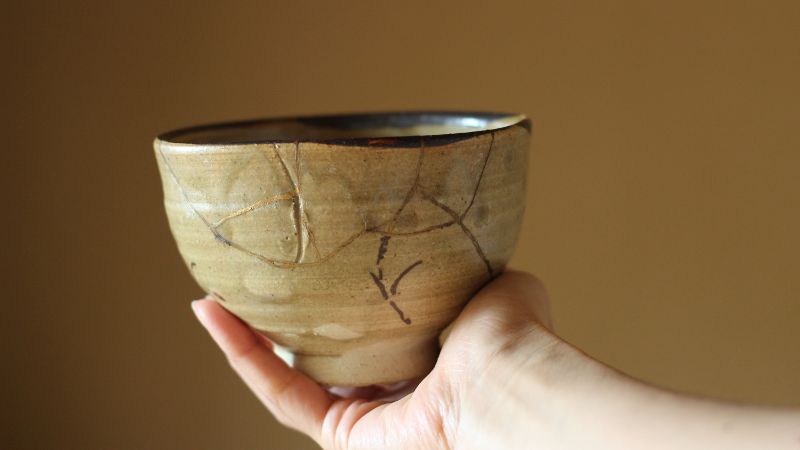
Beginner Level:
- Handbuilding: From easy pots and mugs, to complex vessels with textures and shapes.
- Pinch Pots: Formed by delicately shaping a ball of clay with your fingers, creating charming vessels.
- Coiling: Building with long ropes of clay, stacking them to craft unique and textured shapes.
- Slab Construction: Artfully constructing forms using flattened sheets of clay, allowing for limitless creativity.
Beginner to Intermediate Level:
- Throwing: Unleash your inner artist on the potter’s wheel.
- You can master the rhythmic rotation of the wheel, gently molding clay into elegant and symmetrical bowls, plates, and vases.
- Slip Casting: Discover the magic of liquid clay poured into molds.
- Explore the fascinating process as the clay solidifies, revealing refined and replicable designs.
- Press Molding: Transform clay with your hands or a press.
- Witness the clay gracefully take the mold’s shape, yielding intricate details and captivating textures.
Intermediate to Advanced Level:
- Sculpting: Mold clay into captivating three-dimensional sculptures and figurines.
- Embrace the versatility of hand tools or the tactile experience of direct manipulation to create captivating artworks.
Advanced Level:
- Glazing: Elevate your pottery with a captivating glass-like finish.
- Dive into a world of minerals and oxides, exploring a kaleidoscope of colors, finishes (matte, glossy, textured), crystalline glazes, and transformative effects.
- Firing: Unlock the alchemy of the kiln, where clay undergoes a remarkable transformation.
- Bisque firing solidifies the clay, while glaze firing fuses vibrant colors and textures, culminating in a permanent, hardened masterpiece.
Remember, this is a general guide. Your pottery journey will be unique, and you may have a desire to focus on one particular area or technique. Classes can help you explore new skills and bring your creativity to a new level. They are also a great way to get your projects fired without having to purchase and service a kiln.
Joanna Miller
Clay Maven
I’m an artist and educator who’s head over heels in love with pottery and ceramics. Seriously, I’ve got clay running through my veins! From the moment I first touched that squishy, magical substance as a kid, I knew I had found my calling. Now I help others, from hobbyists to professionals, become their best self.


